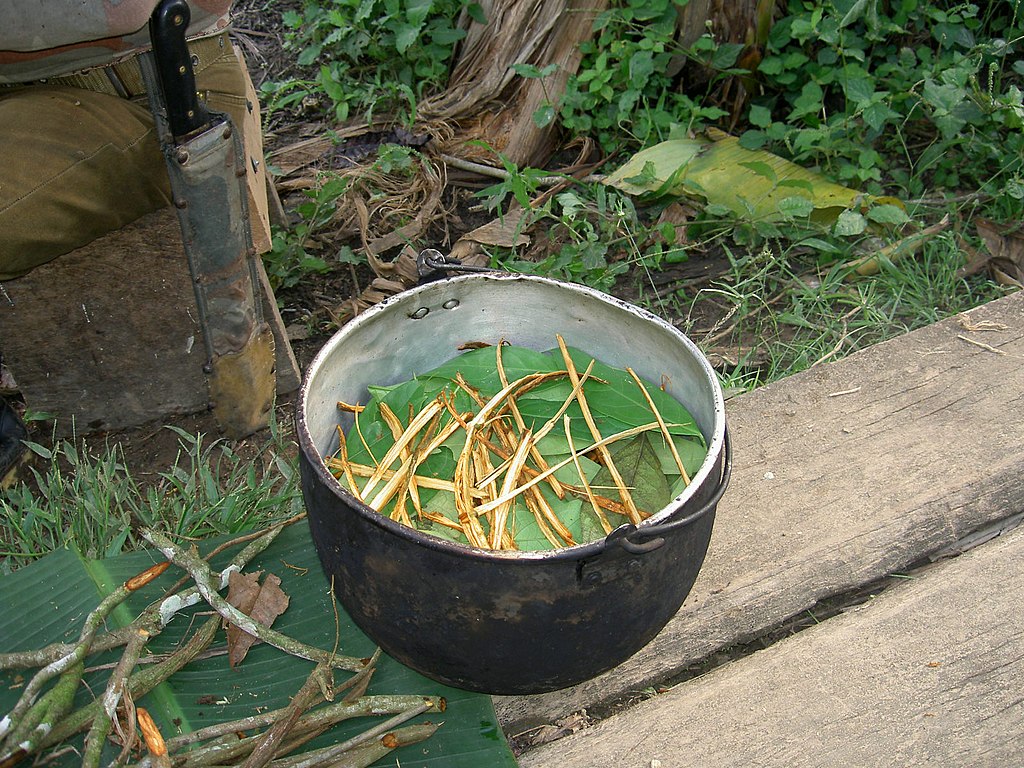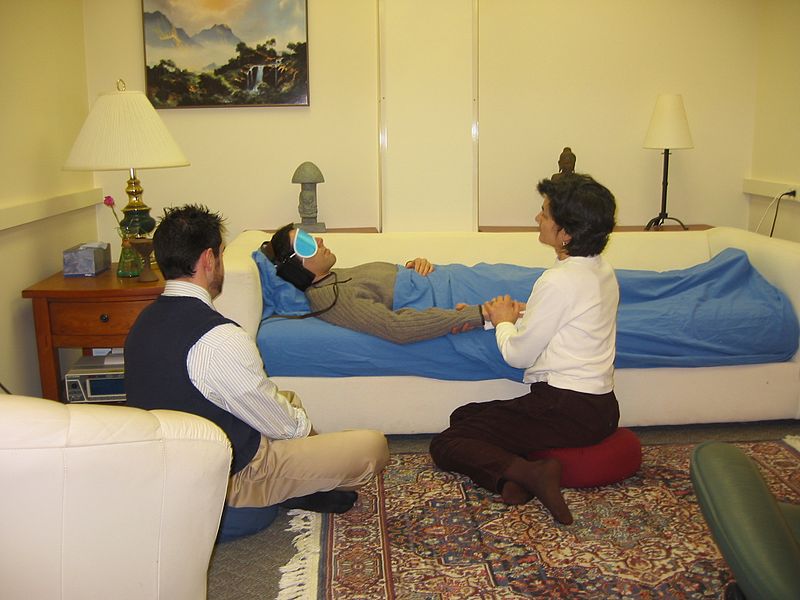What does the future of psychedelic medicine look like in the UK? What treatments might be available? How could they be accessed?
Nowadays our news feeds and science journals are bursting at their pixelated seams with late-stage, gold-star clinical studies promising revolutionary new psychedelic treatments for a wide range of mental health conditions… This is 2023 after all. Psychedelic-assisted psychotherapy is available in clinics across the US, with numerous psychedelic trials being fast-tracked by the FDA as ‘breakthrough therapies’.
Just last month, the Australian government made history with its landmark decision to legalise the medical use of MDMA and psilocybin. This fast-growing field is developing promising therapies for treatment-resistant conditions such as anxiety, addiction, PTSD and depression.
And yet, the reality on British soil is a far cry from the psychedelic healthcare utopia you’ve read about on the internet. Under the 1971 Misuse of Drugs Act, Psilocybin, LSD, MDMA and DMT remain illegal to possess and supply in the UK. As patients, researchers and policy-makers around the globe grapple with how to assimilate what we are re-discovering about the curative powers of psychedelics, it’s important to envision how these ancient modes of healing can be incorporated into medicine today.
Pill or Process?
Psychedelics could be integrated into UK healthcare as clinical compounds or as a complementary and alternative medicine (CAM), synonymous with treatments like acupuncture or herbal medicine. These two pathways are not mutually exclusive and could both be effective routes to treatment.
Healing modalities that fall under the CAM category are often based on principles and evidence which are not widely accepted by the scientific community. However, as psychedelics continue to amass a conglomerate of rigorous studies with significantly positive outcomes, there’s no reason that these compounds couldn’t rub shoulders with modern pharmaceuticals like citalopram or sertraline. Nevertheless, establishing psychedelic treatments as an alternative medicine instead of a clinical treatment may be desirable for preserving the role of ceremony, which is intrinsic to indigenous psychedelic healing practices.
Decolonising Psychedelic Science
Before the Western world awoke to the benefits of psychedelics, healers around the world had been using entheogens like Peyote and Ayahuasca since time immemorial. Modern science is only now catching up with psychedelic knowledge which has been fostered and honed by indigenous communities over millennia. In fact, psychedelic science is founded entirely on the deep and rich history of indigenous healing practises in this field.

Preparation of Ayahuasca, Province of Pastaza, Ecuador
Pre-colonisation by the Europeans, psychedelic use in the Americas was part of a holistic system of care which included spiritual practises, plant-based medicines and community involvement. The suppression of these psychedelic practices was no accident; it was a result of the systematic erasure of indigenous existence through oppression of livelihood, narratives, culture, religion and medicine.
Therefore, it is paramount to honour the fountain of indigenous resources on which future treatments are being built. This means acknowledging the cultural origins of psychedelic wisdom, as well as developing therapies in a way that doesn’t alienate indigenous communities from using, accessing and dispensing them.
Honouring the Process: psychedelic-assisted psychotherapy
Historically, ritual, ceremony and community were inseparable from the therapeutic consumption of psychedelics, with shamanic figures being a core part of the process. The archetypal role of shamans in this context is comparable to the role of mental healthcare professionals. Like healers, therapists engender qualities that enable them to provide wisdom, care and guidance to their patients. In this way, therapists are distinctly suited to act as facilitators, navigating patients through psychedelic experiences. Aside from sharing the etymological root ‘psyche’ (originating from the Ancient Greek ‘psukhē’ meaning ‘breath’, ‘life’ and ‘soul’) there are many parallels between psychedelic ceremonies and the experiences people undergo during psychotherapy.
Psychedelic-assisted psychotherapy (PAP) is an innovation on traditional talking therapies. PAP entails the professionally supervised use of a psychoactive compound as part of the therapeutic process. Because of the subjective nature of psychedelic experiences, PAP is best-aligned with humanistic therapies. This approach is characterised by an empathic, compassionate vision of human potential, fuelled by a focus on personal growth and self-actualisation. It can be an effective tool for processing the transformative revelations which can stem from psychedelic use because patients are asserted as active participants in their own healing.

A photo taken in 2008 of one of the comfortable rooms at Johns Hopkins University used in clinical studies to determine the effects of psilocybin and other hallucinogenic drugs. Two guides monitor the experiences of the subject, and provide reassurance when volunteers experience anxiety.
Although the structure of psychedelic therapy may vary, its basic format generally consists of medicated sessions which are prefaced by preparatory sessions and followed by integrative sessions. During the medicated sessions, patients will consume a set dose of psychoactive substances in a comfortable setting under professional supervision, usually while listening to evocative instrumental music. During this time, patients are encouraged to be introspective, paying attention to thoughts and feelings, and can engage in therapy with their treatment facilitators at any point in the session.
Accessing Indigenous Wisdom
For psychedelic therapies to be accessible in the UK, one or more psychedelic compounds must be legalised and/or decriminalised for medical use. There are various regulatory routes that could be taken to effect this change. Senate Bill 519 made California the first state to legalise the possession, personal use and non-commercial sharing of psychedelics in June 2021. A different approach was taken in Oregon’s 2020 Psilocybin Services Act, which charged the Oregon Health Authority with legalising and regulating the manufacture and distribution of psilocybin for clinical use.
Regardless of the route travelled to legalisation, ethics and accessibility considerations should be intrinsic to the regulation. This is because the integrity and sustainability of the legal framework hinges on ensuring that BIPOC (Black, Indigenous and people of colour) voices are at the helm of the creation and implementation of this legal framework. This is to protect BIPOC communities against alienation from healing practises which their ancestral wisdom pioneered. These measures should guarantee that both PAP practitioner training programmes and the treatments themselves are affordable and accessible to BIPOC individuals.
Room for the unknown? The evolution of science
Due to their universal ability to induce altered mind-states, psychedelics have had a profound influence on medicinal, cultural and shamanic traditions for as long as we have been human. Their use over time has contributed to an archive of ancestral knowledge as valuable and indispensable as the root networks which make up the fabric of the Earth’s soil. But what does this look like under the glaring, fluorescent lights of a clinically-focused system racked by budget cuts and healthcare inequality?
Introducing psychedelic healing practises in the white-dominated, medical model is about more than dropping a new drug on the market. Psychedelic therapy represents a paradigm shift in the way we approach talking therapies and mental healthcare as a whole. This psychedelic renaissance is an opportunity to birth a more balanced and equitable relationship between modern science and other ancient forms of knowledge.
The healing transformations which can stem from psychedelic use are now widely accepted. Although the change that occurs is not a physical one, it is experientially undeniable. And yet, it continues to elude the objective measures on which modern science so staunchly relies. When indigenous wisdom is acknowledged alongside this growing body of science, we pave the way for a richer understanding, not only of psychedelics, but of ourselves and the worlds we make through the stories we tell.
